Step into the ancient world to uncover the mystery behind Methuselah's 969 years, the oldest man in the Bible.
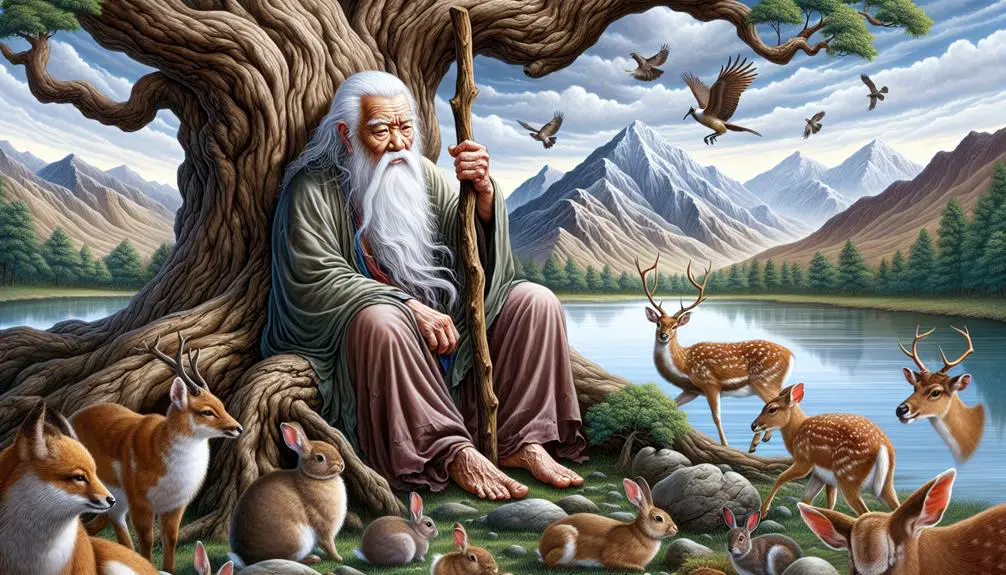
Oldest Man to Ever Live in the Bible
As they say, age is just a number, but in the case of Methuselah, it's a number that has fascinated scholars and theologians for centuries. You might have heard of him as the oldest man to ever live according to the Bible, boasting an age of 969 years.
This tale isn't just about longevity; it's a gateway to understanding the ancient world, biblical narratives, and the symbolism behind such remarkable lifespans. While you're pondering the reality of Methuselah's age, consider how his story connects to broader discussions about human longevity, ancient storytelling, and the very nature of time itself.
Why, you might ask, has Methuselah's age remained a topic of such intrigue? Well, that's where the journey into his life and times begins.
Key Takeaways
- Methuselah, the oldest man in the Bible, lived to be 969 years old.
- His extraordinary lifespan symbolizes divine patience and the potential for human longevity.
- Methuselah's age, compared to other biblical figures, illustrates unique perspectives on longevity in ancient narratives.
- Cultural references to Methuselah highlight society's enduring fascination with extending life and achieving longevity.
Who Was Methuselah?
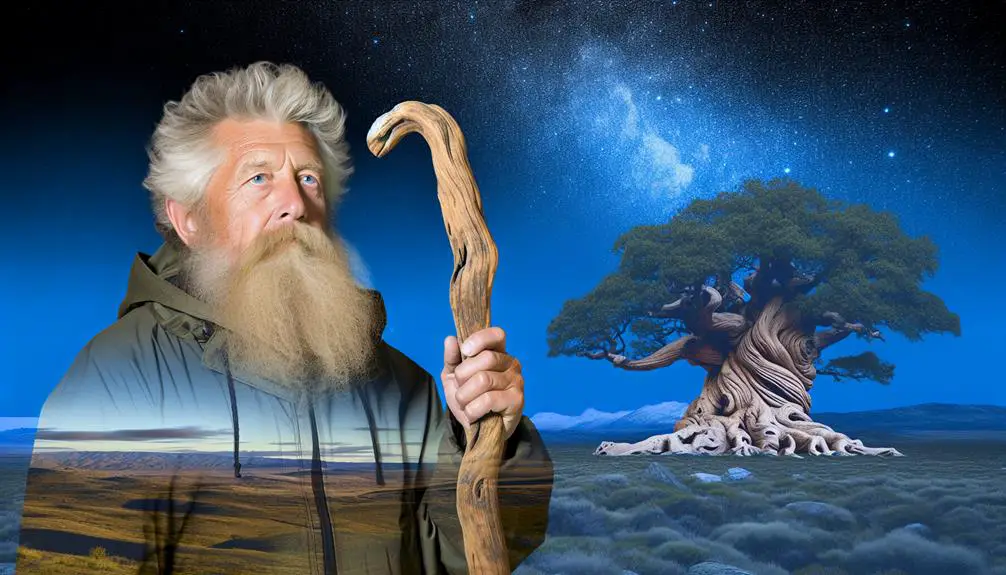
Methuselah, known within the context of the Bible as the longest-lived person, boasts a lifespan that challenges our understanding of human longevity. When you delve into his story, it's not just a tale of age but a window into ancient diets and longevity myths. These elements collectively offer a fascinating glimpse into the lives of those who came before us, suggesting that their lifestyles may have contributed significantly to their lifespans.
You must consider how ancient diets, largely plant-based and unprocessed, could have played a pivotal role in promoting health and longevity. The absence of modern-day processed foods, coupled with a more physically active lifestyle, might explain the extraordinary ages mentioned in biblical times. Furthermore, the longevity myths that have permeated cultures around the world often speak to a deep human desire to understand the secrets of a long life. Methuselah's story, therefore, stands at the intersection of historical dietary practices and the myths that have sought to explain human longevity.
Analyzing Methuselah's age through the lens of ancient diets and longevity myths not only enriches your understanding of his life but also invites you to ponder the factors contributing to a long and healthy life.
The Genesis Account
In the heart of the Genesis narrative, we find a detailed account that not only chronicles the genealogies of early humanity but also offers insights into the extraordinary lifespans of its figures. This portion of the Bible, specifically the chapters that detail Genesis creation and Adam's lineage, serves as a foundational text for understanding the broader theological and historical contexts of ancient human history.
Key aspects of the Genesis account that captivate scholars and believers alike include:
- The meticulous genealogies that trace humanity from Adam, providing a framework for the rest of biblical history.
- The narrative of Genesis creation, which sets the stage for the complex relationship between God and humanity.
- The exceptional ages recorded for many of the figures, suggesting a different understanding of time and life in the ancient world.
This analysis invites you to explore the depths of the Genesis account, encouraging a deeper appreciation for its role in shaping the foundational beliefs and historical understanding of early human existence. The Genesis narrative, with its rich tapestry of stories and genealogies, remains a pivotal source for those seeking to grasp the intricacies of Adam's lineage and the dawn of mankind.
Deciphering Biblical Lifespans
Exploring the biblical lifespans recorded in scripture reveals a fascinating aspect of ancient narratives that challenges our modern understanding of human longevity. These ages, often extending well beyond what's considered possible today, stir up intriguing discussions about aging theories and the historical accuracy of such claims.
Biblical Figure |
Reported Age |
|---|---|
Methuselah |
969 years |
Noah |
950 years |
Adam |
930 years |
In scrutinizing these figures, you're not just encountering numbers; you're delving into a realm where faith intersects with historical and scientific inquiry. The ages reported in the Bible, especially in the book of Genesis, prompt a reevaluation of what you know about aging and human potential. Skeptics and believers alike ponder whether these lifespans are literal or symbolic, contributing to a broader discussion on the interpretation of ancient texts.
Theories on aging, both modern and ancient, offer varied explanations for these extended lifespans. Some suggest environmental factors, others divine intervention, while a few propose allegorical readings to convey moral or spiritual truths. Regardless of the stance, the pursuit of understanding these biblical lifespans respects the blend of faith, history, and science, urging a thoughtful exploration of the past to inform our present notions of age and longevity.
Methuselah's Family Tree
You'll find that Methuselah's genealogy provides a rich tapestry for understanding ancient lifespans within biblical narratives.
By examining his notable descendants, one gains insight into the intergenerational legacy and its implications on historical and religious contexts.
This exploration into Methuselah's lifespan and its contextualization offers a unique perspective on the longevity recorded in biblical times.
Methuselah's Genealogy Explored
Delving into Methuselah's genealogy reveals a lineage deeply rooted in biblical history, tracing back to Adam through his direct descendant Seth. The exploration of this genealogy not only unfolds a mesmerizing narrative spanning generations but also invites discussions on:
- Genetic implications of such longevity
- Historical accuracy within ancient texts
- The role of oral traditions in preserving these lineages
Analyzing Methuselah's family tree, you're faced with intriguing questions about the genetic implications and the historical accuracy of these accounts. How did Methuselah's ancestry influence his reported lifespan? What can this genealogy tell us about the people and the times they lived in?
Methuselah's genealogy, intertwined with the fabric of biblical history, offers a unique lens through which to examine these ancient narratives.
Notable Descendants Highlighted
Having examined the genealogy of Methuselah, let's now focus on his descendants, who stand out as significant figures in biblical history. Foremost among them is Noah, Methuselah's grandson, a central figure in the story of the Great Flood.
This lineage, linking Methuselah to Noah, isn't just a genealogical detail; it's a bridge connecting various narratives within the Bible, underscoring the historical accuracy and cultural significance attributed to these accounts. The descent from Methuselah to Noah illustrates a continuity of faith and divine favor, themes pivotal to understanding the biblical worldview.
Scholars and theologians alike scrutinize these connections, not only to trace familial lines but to explore the deeper implications these relationships hold for the interpretation of biblical texts and their resonance within the tapestry of human history.
Lifespan Contextualization
To fully appreciate the extraordinary age of Methuselah within the context of his family tree, it's essential to consider the lifespans of his ancestors and descendants as recorded in biblical texts.
- Medical advancements have significantly changed our understanding of human longevity, yet Methuselah's age remains unparalleled.
- Age verification in ancient texts is complex, making Methuselah's 969 years a subject of scholarly intrigue.
- The lifespans of Methuselah's family, including Adam's 930 years and Noah's 950 years, highlight a pattern of remarkable longevity.
This context underscores the extraordinary nature of Methuselah's age. While modern medical advancements have extended life expectancy, the biblical record of Methuselah's lifespan stands as a testament to a time when the human lifespan was perceived very differently.
Symbolism of Methuselah's Age
Within the rich tapestry of Biblical narratives, Methuselah's remarkable age isn't merely a testament to longevity but symbolizes deeper spiritual truths and divine designs. His age, reaching 969 years, isn't just a number; it's a profound element of age symbolism and longevity myths that permeates many ancient texts, including the Bible. You'll find that Methuselah's age serves as a bridge between the mortal and the divine, a testament to the extraordinary lifespans granted by God in the antediluvian (pre-flood) era.
This symbolic interpretation suggests that Methuselah's lengthy existence wasn't arbitrary. Instead, it reflects a period of grace and patience from God towards humanity, a time during which people were given the opportunity to repent and return to divine ways. The longevity of Methuselah, therefore, isn't just a historical or biological curiosity; it's a narrative device laden with spiritual significance. It underscores the merciful nature of God, offering a narrative pause, a prolonged moment before the impending judgment of the flood. Thus, Methuselah's age becomes a symbol of divine patience and the persistent hope for mankind's return to righteousness.
Comparisons to Other Biblical Figures
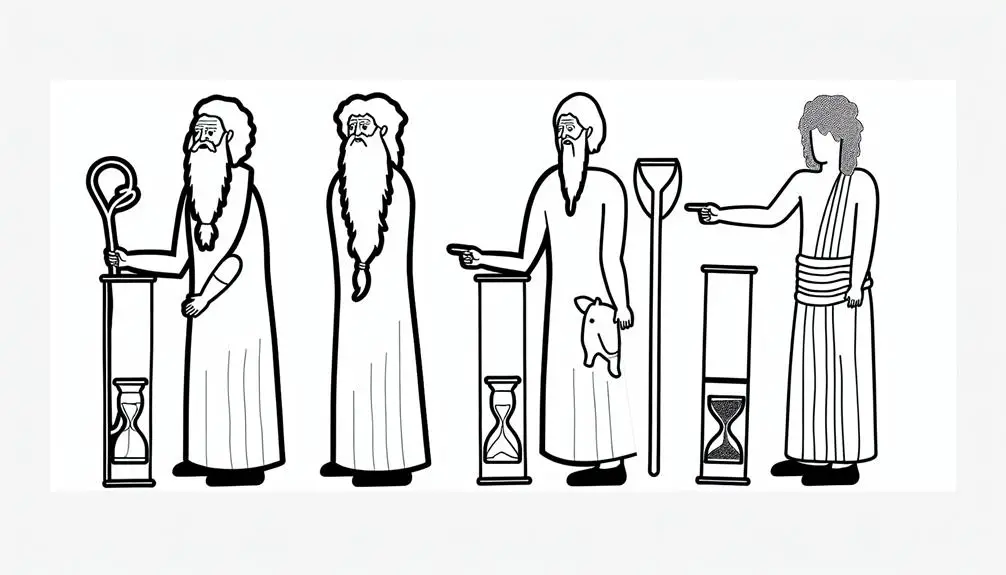
You'll find that Methuselah's age, when compared to other biblical figures, offers a unique perspective on longevity and its implications in biblical narratives.
By examining the differences in ages, you gain insight into the varied significance of life spans within these ancient texts.
This comparison not only highlights Methuselah's extraordinary longevity but also invites a deeper understanding of its narrative and symbolic roles in comparison to his contemporaries.
Methuselah's Longevity Context
Analyzing Methuselah's age, which the Bible records as 969 years, reveals a remarkable outlier even among the ancient patriarchs, whose lifespans significantly exceed modern human standards. You might wonder what contributed to such extraordinary life spans. Scholars have suggested several factors, including:
- Ancient diets, which were presumably unprocessed and rich in nutrients.
- Environmental factors, implying a world vastly different from today's, possibly with conditions more conducive to longevity.
- Genetic differences, which could have played a significant role in the long lifespans recorded in biblical times.
While Methuselah's age is astonishing, it's essential to consider these aspects to understand the context of his and other biblical figures' longevity. This perspective helps bridge the gap between ancient texts and modern scientific inquiry, offering a respectful and analytical view of these records.
Age Differences Highlighted
Given Methuselah's astonishing age, it's instructive to compare his lifespan with those of other biblical figures to gain further insights into the era's longevity narratives.
Delving into these comparisons, you uncover a tapestry of age myths that both fascinate and perplex. These myths, steeped in the cultural and religious fabric of the time, offer a window into the values and beliefs of ancient societies.
The longevity ethics explored through these narratives challenge you to consider the implications of such extended lifespans on societal roles and spiritual destinies. By examining these age differences, you not only appreciate the singular position Methuselah occupies but also understand the broader context of age and longevity in biblical times, illuminating the complex interplay between myth, ethics, and the human condition.
Notable Lifespans Comparison
In comparing Methuselah's remarkable age to those of other biblical figures, we uncover a fascinating landscape of ancient longevity that beckons further exploration. Modern interpretations and aging theories offer varied insights into these extended lifespans.
- Adam: Lived 930 years, setting the precedent for pre-flood lifespans.
- Noah: Reached 950 years, his life spanning both pre- and post-flood eras, suggesting environmental or divine factors in longevity.
- Jared: Methuselah's father, lived 962 years, indicating a potential genetic component to these extraordinary ages.
These comparisons invite a deeper investigation into the narratives and contexts surrounding aging in ancient texts. They challenge us to consider how aging theories and modern interpretations can illuminate our understanding of these storied lifespans, respecting their cultural and theological significance.
The World of Methuselah

Methuselah's era, spanning an astonishing 969 years according to biblical records, offers a profound glimpse into the ancient world's longevity and societal structures. You're invited to delve into an epoch where ancient diets and flood theories play pivotal roles in understanding the remarkable age claims of figures like Methuselah.
Ancient diets, primarily consisting of raw fruits, vegetables, and possibly meat from animals that had longer lifespans themselves, are speculated to have contributed significantly to the extended lifespans documented in biblical texts. These dietary habits, rich in nutrients and possibly free from modern pollutants, might've bolstered human longevity.
Simultaneously, flood theories intertwined with Methuselah's lifetime provide a fascinating framework for analyzing pre-flood society's dynamics. The biblical account suggests Methuselah's death coincided with the onset of the Great Flood, a cataclysmic event that could symbolize a pivotal shift in human history and environmental conditions. Scholars often explore how such a significant event might've altered the landscape, potentially impacting the longevity of post-flood generations.
Analyzing Methuselah's world through the lenses of ancient diets and flood theories allows a deeper understanding of the societal and environmental factors that could have influenced the remarkable lifespans of early biblical figures.
The Methuselah Legacy
The legacy of Methuselah extends far beyond his remarkable lifespan, influencing both historical interpretations and modern cultural perceptions of longevity. You're drawn into a narrative that's as old as time, yet its implications ripple through to the present day, challenging your understanding of the human lifespan.
- Age myths: Methuselah's story is a cornerstone, inspiring a myriad of age-related myths across cultures. It prompts you to question the boundaries of human life and the plausibility of such extraordinary lifespans.
- Longevity genes: The narrative of Methuselah sparks curiosity about the genetic possibilities of longevity. You're led to ponder if there could indeed be hidden keys within our DNA that could unlock the secrets to living longer, healthier lives.
- Cultural perceptions: Methuselah's age is more than a number; it's a symbol that has shaped cultural perceptions about aging and longevity. It invites you to reflect on how societies have historically viewed old age and how these views have evolved over time.
In dissecting Methuselah's legacy, you're not just exploring the past; you're also engaging with ongoing conversations about the limits of human life and the quest for longevity. Through this lens, Methuselah's story isn't just historical; it's profoundly relevant to how you understand life and aging today.
Scientific Perspectives on Longevity
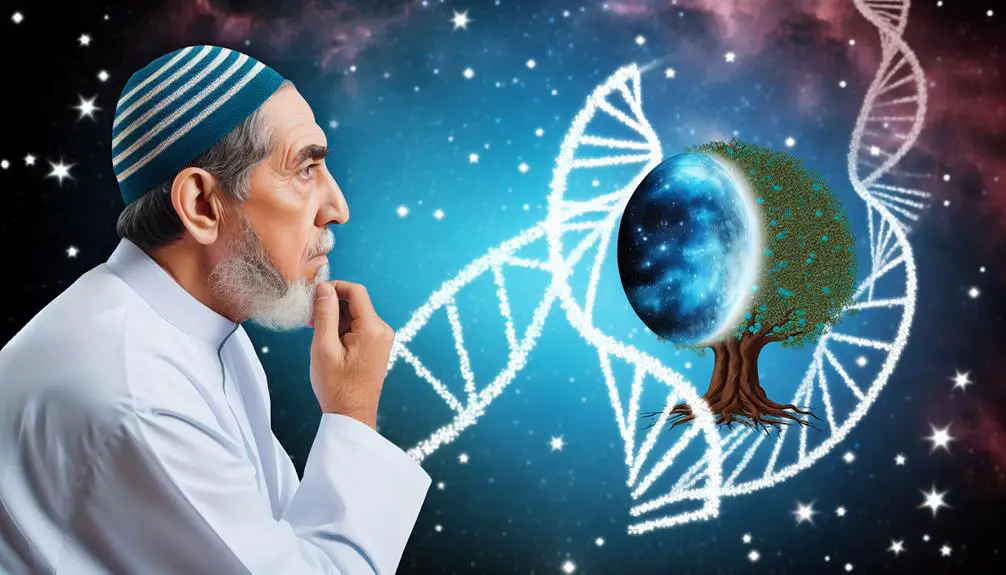
Exploring Methuselah's legacy leads us to question how modern science understands and seeks to enhance human longevity. You'll find that researchers are delving deep into the genetic foundations of aging, uncovering genetic mutations that might hold the key to significantly prolonged lifespans. These mutations, often associated with enhanced DNA repair mechanisms or superior protection against diseases, offer a glimpse into a future where the bounds of human life could be dramatically extended.
Moreover, the concept of calorie restriction has emerged as a promising avenue for research. Studies have shown that reducing calorie intake, without malnutrition, can extend lifespan in various organisms, including yeast, worms, and even some mammals. This has led scientists to ponder the implications for humans, analyzing how a decrease in calorie intake might influence aging processes, potentially slowing them down and extending healthy life years.
Your understanding of longevity, influenced by these scientific perspectives, showcases a bridge between the ancient narrative of Methuselah and the cutting-edge research of today. It's a testament to humanity's enduring quest to comprehend and possibly extend the limits of our lifespan, respectful of our past yet firmly rooted in the possibilities of modern science.
Methuselah in Modern Culture
References to Methuselah have permeated modern culture, showcasing the enduring fascination with longevity and the limits of human life. This Biblical figure, symbolizing the pinnacle of human lifespan, continues to inspire various modern narratives and concepts, reflecting society's quest to understand and potentially extend human life.
- Methuselah cocktails: Named after the oldest man in the Bible, these cocktails epitomize the celebration of longevity and life. They're often featured in high-end bars and events, symbolizing luxury, endurance, and the rich tapestry of human history.
- Longevity genes research: Scientists often reference Methuselah when discussing the pursuit of longevity genes, which could unlock the secrets to extending human life significantly. This quest mirrors the symbolic search for Methuselah's 'secret' to a long life, blending ancient narrative with modern scientific inquiry.
- Cultural expressions: Methuselah's name is used in literature, film, and art to evoke themes of survival, wisdom, and the passage of time, underscoring the deep human yearning to comprehend and possibly overcome the boundaries of our lifespan.
This integration of Methuselah into various facets of modern culture underscores a collective fascination and reverence for the concept of longevity, combining the mythical with the tangible in the ongoing exploration of human potential.
Frequently Asked Questions
How Did Methuselah's Unusually Long Lifespan Impact the Daily Cultural and Social Practices of His Contemporaries?
Methuselah's incredibly long life wasn't just a number; it deeply influenced the cultural and social norms around you.
You'd find his existence steeped in genealogical significance, shaping how lineages were traced and valued.
Moreover, his age held profound religious symbolism, offering lessons on divinity's influence over life and death.
This reverence for Methuselah's age likely impacted daily practices, embedding a respect for elders and the mysteries of faith in your societal fabric.
Are There Any Specific Dietary or Lifestyle Habits Attributed to Methuselah and Others of His Era That Were Believed to Contribute to Their Extended Lifespans?
You might wonder if specific diets or lifestyles led to longer lives back then. No direct evidence links Methuselah's age to certain habits, but genetic speculation and environmental factors are often considered.
Scholars suggest that if unique diets or routines contributed to such longevity, they'd intertwine with genetics and pristine living conditions. However, without concrete records, these remain educated guesses, highlighting the need for a nuanced understanding of historical lifespan narratives.
How Has Methuselah's Story Influenced Modern Scientific Research and Theories About Human Aging and Potential Lifespan Extension?
Methuselah's tale, a beacon of human curiosity, has profoundly influenced modern science's quest to unlock the secrets of aging and lifespan extension.
Genetic engineering and telomere research have become pivotal as scholars seek to understand the very fabric of our being, aiming to weave a future where age is but a number.
Respectfully, this exploration offers a glimpse into a world where the boundaries of life aren't just pushed but redefined.
In What Ways Have Non-Abrahamic Religions or Mythologies Referenced or Interpreted the Concept of Extraordinarily Long Lifespans Similar to Methuselah's?
You'll find that many non-Abrahamic mythologies embrace the idea of incredibly long lifespans. For instance, Hindu texts speak of immortals, beings who've defied aging and death through divine favor or intense meditation.
Similarly, the Sumerian kings' list details rulers with reigns stretching thousands of years, suggesting ancient cultures often pondered the bounds of human life.
These stories reflect a universal curiosity about longevity and the possibility of life beyond typical human spans.
How Do Modern Interpretations of Methuselah's Age Reconcile With Archaeological and Historical Evidence Regarding Human Lifespans in Ancient Times?
You're diving into how Methuselah's age fits with past human lifespans. Scholars often explore genetic mutations and climate effects as potential explanations. They meticulously compare biblical accounts with archaeological finds to understand longevity in ancient times.
Despite the challenges, these analyses help bridge the gap between religious texts and historical evidence, offering insights into the remarkable ages mentioned. This approach respects both scientific inquiry and the depths of religious narratives.
Conclusion
In sum, Methuselah's monumental age marvelously mirrors mankind's ancient aspirations and anxieties about aging and eternity.
By blending biblical narratives with scientific scrutiny, we've ventured into the vast vistas of human longevity, learning lessons from Methuselah's life and legacy.
This scholarly exploration not only sheds light on the symbolism strewn throughout his story but also sparks significant speculation on the sustainability of such extensive existences.
Thus, Methuselah remains a captivating character, continuously challenging our comprehension of time, tradition, and transcendence.

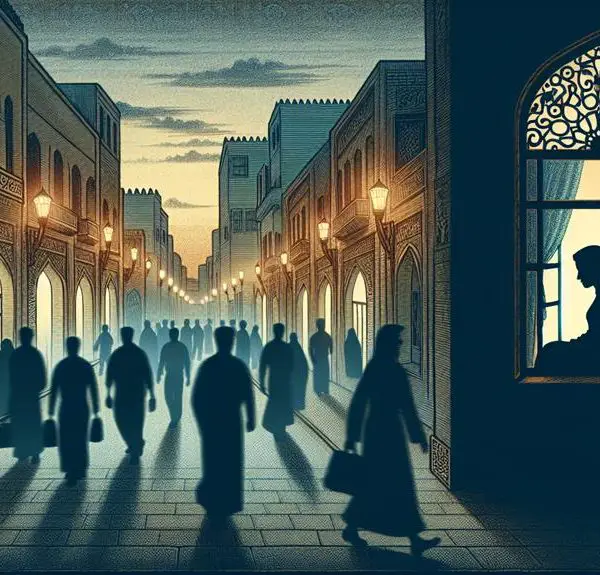

Sign up